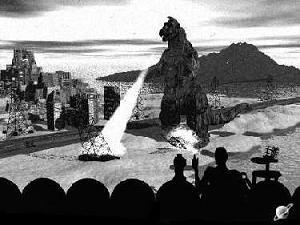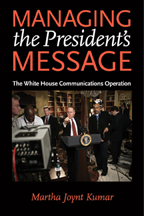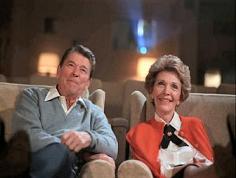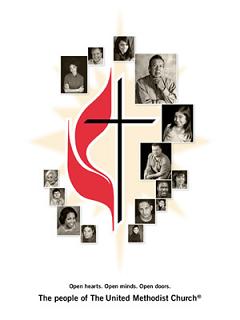Whig Party
18-Feb-08
Perhaps your creepiest option to mark President’s Day is in Philadelphia, where they are displaying hair samples of the founding fathers.
The history is sort of dubious, except as an illustration of odd 19th century obsessions.
Remembering history the way they wished it had been
Perhaps your creepiest option to mark President’s Day is in Philadelphia, where they are displaying hair samples of the founding fathers.
The history is sort of dubious, except as an illustration of odd 19th century obsessions.
The case often made for Presidential Libraries is that their localness, their dispersion out of Washington somehow furthers a deeper understanding of those who held the office. David McCullough says keep ’em down on the farm:
“…it is valuable for anyone trying to understand the life of a particular president should come to the place that produced that human being, where his memory is part of the story of that place.”
Or perhaps they just provide local opportunities to further embed ignorance. A recent visitor to the Nixon Library blogged about his experience, and he knows a whole lot of nuthin.
Berlin Wall chunks at Presidential Libraries celebrating administrations further and further from actual events in Germany are an enormous joke, and our lad’s not in on it.
“One of my favorite displays at the library was a section of the Berlin Wall – very fitting since Nixon played a pretty large role in its ultimate demise.”
And speaking of tear-downs, the visitor seems to have missed the whole removal/revision of the Watergate exhibit. 
The former exhibit space
“There were disappointments at the library, however. Most notably, there wasn’t a section about Watergate at all. As I think back, I wonder if we missed it, but I don’t think we did – we walked through the entire permanent exhibit and I didn’t see anything. Of course, it’s a museum that pays homage to Nixon, so I wasn’t expecting monumental space devoted to the end of his presidency, but to not address it seems very short sighted.”
White House Easter Egg historian C. L. Arbelbide explored the troubled history of the nebulous President’s Day holiday in the National Archives journal and dug up some interesting predictions during Congress’s debate over lumping federal holidays onto Mondays.
“It was the collective judgment of the Committee on the Judiciary,” stated Mr. William Moore McCulloch (R-Ohio) “that this [naming the day “President’s Day”] would be unwise. Certainly, not all Presidents are held in the same high esteem as the Father of our Country. There are many who are not inclined to pay their respects to certain Presidents. Moreover, it is probable that the members of one political party would not relish honoring a President from the other political party whether he was in office, no matter how outstanding history may find his leadership.”
“…if we make Monday holidays, to fulfill the promise to merchants that they are going to do a better business, that employees of the stores of this country will have no holidays. They will work at selling merchandise. That is about what will happen.” Rep. Harold Gross (R-Iowa)
Writers never tire of linking politicians to pop culture. It’s favorite lists, free association and bad jokes, with the patina of History.
Peter “Not TV’s Scamp” Bart steps forward in Variety to do the honors this election season. Bart mobilizes material he appears to have been working on before many candidate’s recent demise, so his Romney and Edwards jokes still go forth to educate and amuse.
It’s a classic setup: candidate X wins and the nation needs to know: what movies will they watch? 
“With Super Tuesday finally behind us, the presidential candidates hopefully will take a breather, perhaps even catch a movie. After all, the winner will soon have that delicious perk, the White House screening room, at his (or her) disposal.”
Bart moves rapidly from unproven thesis to generalization to factoid, to ignoring what a fairy tale Casablanca was.
“All this is relevant because, in the past, the filmgoing habits of previous presidents have provided a good indicator of their true character. Franklin D. Roosevelt was a sucker for any Disney toon, but took his movies seriously enough to arrange a screening of Casablanca just before leaving for the Casablanca Conference of 1943.”
There’s even a Hollywood Ending:
“For the record, the White House’s biggest movie fan was, of all people, Richard Nixon, who liked “Patton” best of all, screening it three times during the secret bombing of Cambodia. Nixon screened some 500 films during his White House stay…”
…and then he closes with a classic dirty joke involving Pat Nixon.
Martha Joynt Kumar Goes to White House 
Martha Joynt Kumar is an actual scholar of White House operations, and she reviewed “All the Presidents’ Movies” when the made for Bravo documentary’s producers claimed it was to be released on DVD.
Kumar’s controversial thesis:
“Presidents spend a fair amount of time watching movies and using them to entertain others“
She does extract some fun facts. This version of White House cinephilia has Jimmy Carter topping Nixon’s supposed 500 films by viewing 579. ” That works out to an average of one every two and a half days.”
National Malaise can only explain so much.
 Everything I Know I Learned From Julie Andrews
Everything I Know I Learned From Julie Andrews
“…the president sometimes watched movies prior to important meetings. Twice that was the case with The Sound of Music. Reagan watched the movie the night before a 1983 Williamsburg economic summit with governors and prior to a 1986 meeting with Gorbachev in Geneva. “
Julie Andrews’ plucky demeanor may have served Reagan well, but the Geneva Summit happened in 1985.
Reagan may have applied Andrew’s methods in other contexts.
In “My favorite Things” Andrew’s character “simply remembers.”
“When I’m feeling sad
I simply remember my favorite things
And then I don’t feel so bad”
The man who confused seeing film of German death camps with being there screened “The Killing Fields” at the White House. He was apparently untroubled, viewing an account of “Democratic Kampuchea” while his administration supported it’s murderous remaints in their war on the Vietnamese installed Hung Sen government. Reagan’s administration [and Carter’s before them] viewed the genocidal Pol Pot as a useful stick against Vietnam.
Confident statements by Southern Methodist University aside, the proposed Bush Library might yet sink.
SMU Perkins School of Theology assistant professor of church history Valerie A. Karras has a detailed run through of potential barriers to the Bush Library in the SMU Daily Campus. She says the University can’t take action without Methodist Church approval, that the proposed Bush Institute would violate SMU’s charter, and might kill it’s tax exempt status.
 Karras says according to SMU’s Articles of Incorporation…
Karras says according to SMU’s Articles of Incorporation…
“campus property can be sold or leased only “for religious or educational purposes [or for student housing].” Given the explicitly partisan and ideological nature of the proposed Bush institute, this provision raises two huge issues: (1) the tax-exempt status of the university, and, underlying this issue, (2) the inconsistency of the proposed institute with legitimately educational purposes. These issues arise because, according to Marvin Bush and Don Evans in their cover letter to the Bush Library committee’s call for proposals, part of the mission of the proposed Bush institute is to be to “further the domestic and international goals of the Bush Administration.”
And she says we’ve seen this film before.
“The Bush Library committee’s proposal is not the first time that politics has tried to piggyback on academia. In fact, very similar proposals were made to Harvard and Stanford for independent, ideological institutes to accompany presidential libraries honoring Presidents Kennedy and Reagan, respectively. Both universities categorically rejected these proposals. Will SMU’s and the SCJ’s commitment to their own legal documents and binding internal rules and, most importantly, to SMU’s academic integrity really be less than that of Harvard and Stanford?”